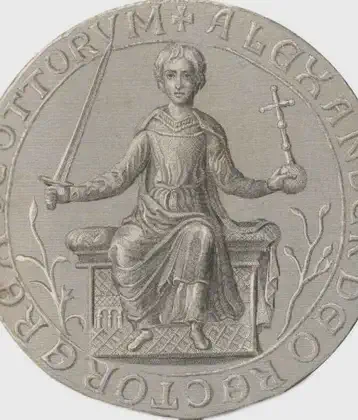On December 06, 1921 in Celtic History
British give the irish a deadline to accept or reject the anglo irish treaty
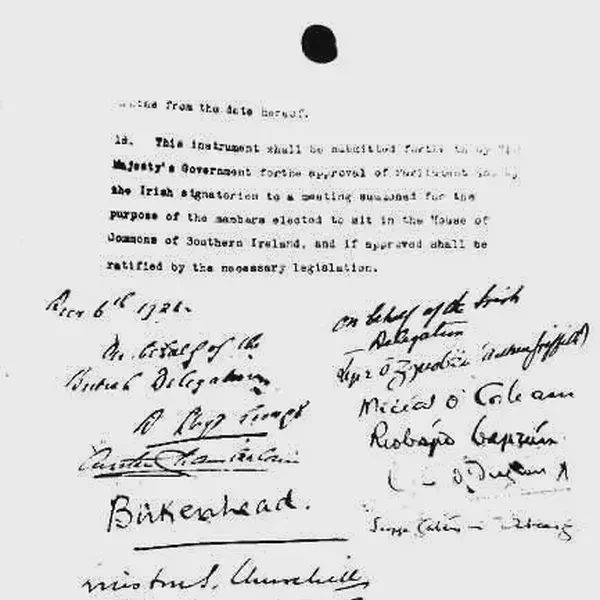
The 1921 Anglo-Irish Treaty, commonly known in Ireland as The Treaty and officially the Articles of Agreement for a Treaty Between Great Britain and Ireland, was an agreement between the government of the United Kingdom of Great Britain and Ireland and representatives of the Irish Republic that concluded the Irish War of Independence.
The Anglo-Irish Treaty, formally known as the Articles of Agreement for a Treaty Between Great Britain and Ireland, was an agreement signed on December 06, 1921, between representatives of the United Kingdom and the Irish Republic. The treaty played a pivotal role in the establishment of the Irish Free State and the subsequent partition of Ireland.
The Irish Free State as contemplated by the treaty came into existence when its constitution became law on 6 December 1922 by a royal proclamation.
Background
The treaty was the result of negotiations between British and Irish representatives, including Arthur Griffith, Michael Collins, and others, following the Anglo-Irish War (1919–1921) between Irish republicans and British forces.
Terms
The treaty consisted of several key provisions. Notable among them were:Establishment of the Irish Free State as a self-governing dominion within the British Commonwealth.Retention of the British monarch as the head of state, represented by a Governor-General in the Irish Free State.An oath of allegiance to the British Crown for members of the Irish Free State’s parliament.
Division over the Treaty
The signing of the treaty led to a deep division among Irish nationalists. Supporters, including Arthur Griffith and Michael Collins, believed it provided a path to self-government, while opponents, led by Éamon de Valera, argued that it fell short of full independence.
Civil War
The disagreement over the treaty resulted in the Irish Civil War (1922–1923) between pro-treaty forces (supporting the treaty) and anti-treaty forces (opposing the treaty).
Impact
The treaty marked a significant step toward Irish independence but also led to the partition of Ireland, with Northern Ireland remaining part of the United Kingdom.
Formation of the Irish Free State
The Irish Free State came into existence on December 06, 1922, as a result of the Anglo-Irish Treaty. It later became the Republic of Ireland.
Legacy
The Anglo-Irish Treaty has had a lasting impact on Irish history and politics. The division over the treaty continues to influence political alignments in Ireland.
More From This Day


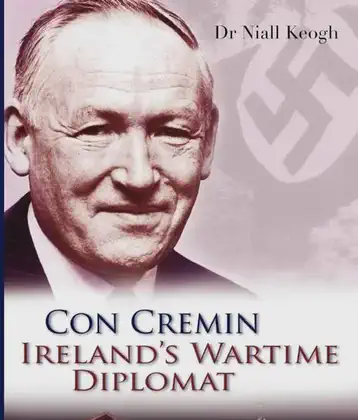
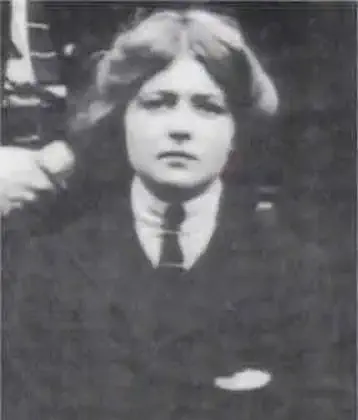

Spanish General Diego O'Reilly is defeated by Peruvian revolutionaries
December 06, 1820
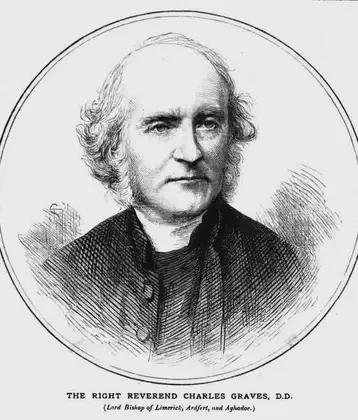


St. Oliver Plunkett, Archbishop of Armagh, is accused of instigating the Irish Popish Plot and arrested
December 06, 1679
